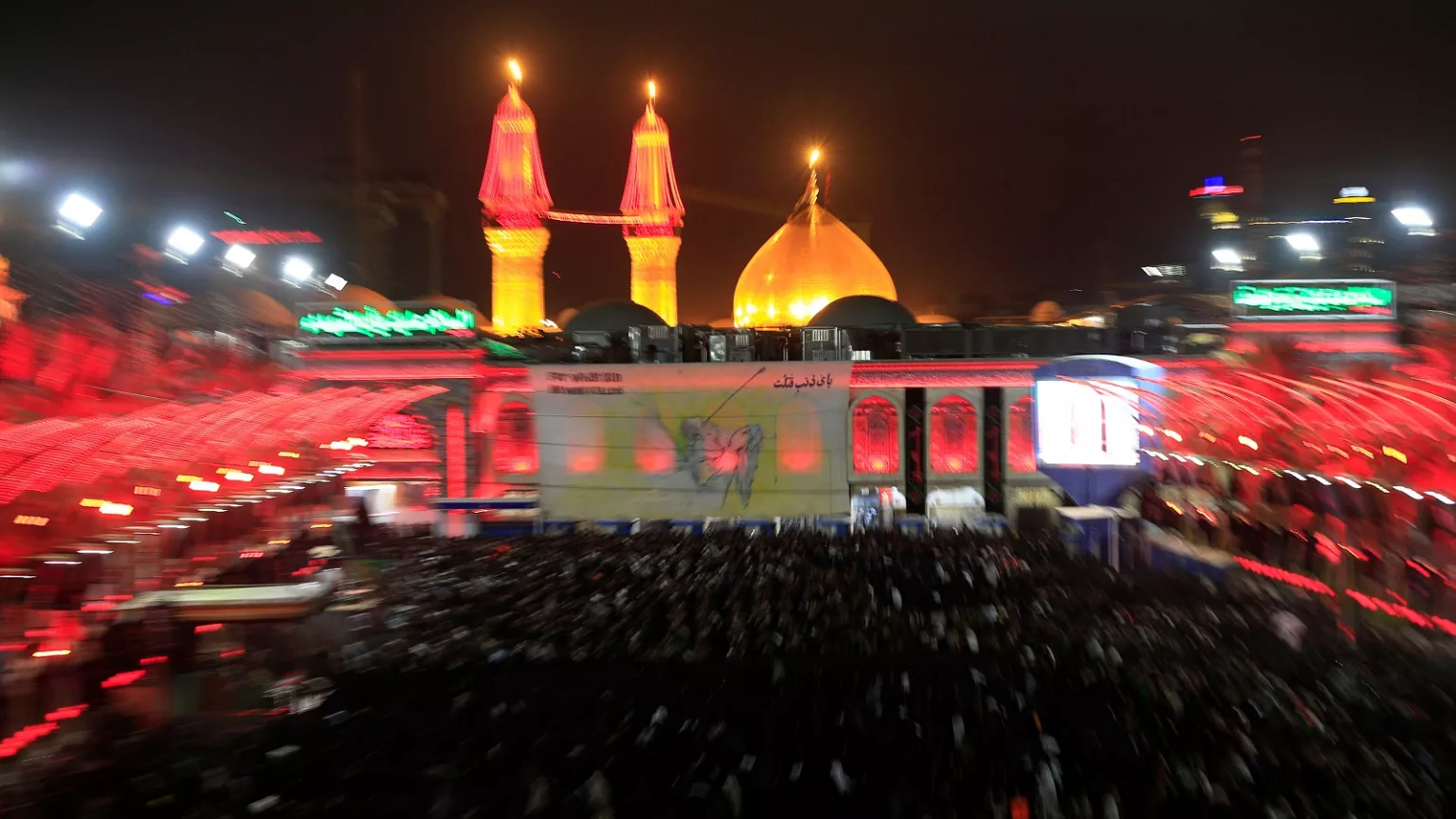Imam Hussain’s (a) stand at Karbala is more than a tragedy — it’s a timeless call for justice. Hussain is for all who resist oppression and stand for truth beyond sectarian lines.
Sometimes, history doesn’t stay in the past. Sometimes, it bleeds through the present — and refuses to be forgotten.
Every year, millions walk toward Karbala. Some are Sunni, some are Shia, some are not even Muslim. Some don’t speak the same language, don’t wear the same clothes, don’t even agree on what happened centuries ago. But they all walk.
Why?
Because there’s something about Hussain (a) that isn’t bound to a religion, or a madhhab, or a group. Hussain is not an icon — he is a mirror. And if you’re honest with yourself, when you look into him, you don’t just see history. You see everything that’s wrong with this world — and everything that’s still right with the human soul.
A Name That Refuses to Belong to One Side
You don’t have to be Shia to feel the weight of Hussain’s sacrifice. You don’t even have to be Muslim. All you need is a beating heart that recoils at injustice.
How can a man stand in front of an army with just a handful of loyal companions, knowing full well that death is guaranteed? What do you call that — if not love? What do you call it — if not the highest kind of faith?
This is why Hussain is for all. Not because someone declared it, but because no one can contain him. He stands taller than the divisions we’ve buried ourselves in. When Yazid tried to silence conscience, Hussain made sure it would scream for eternity.
The Politics We Keep Ignoring
It’s become too convenient to talk about Karbala as only a spiritual event. Mourning, majlis, matam — these are all important. But let’s not ignore the politics that led to Karbala.
Hussain didn’t rise because of a theological debate. He rose because power had become poison. Because a man like Yazid sat on a throne that once belonged to a Prophet. Because truth was being distorted to legitimize tyranny.
And Hussain? He couldn’t accept that. Even if it cost him everything.
This isn’t just history. It’s happening again and again. In every country where voices are silenced, where rulers hand power to their sons like heirlooms, where Islam is reduced to a tool of control — Karbala is repeating itself.
And we? We have a choice. To watch silently. Or to speak like Hussain.
He Didn’t Die So We Could Cry
Yes, we cry for him. How could we not?
The thought of a 6-month-old child shot with an arrow while begging for water — how can a heart not shatter?
But if that’s where it ends, then we’ve misunderstood everything. Hussain didn’t die so that centuries later we could mourn him comfortably. He died to stir the dead inside us. To tell us: “You have a voice. Use it. Even if your stand costs you your life.”
That’s why Hussain is for all. Because injustice exists everywhere. And so must resistance.
Loyalty in a World That Forgets
72 people stood with him. Against thousands. Not for fame. Not for power. But because their hearts wouldn’t allow betrayal.
That kind of loyalty is rare. Even in our families, our friendships, our communities — betrayal has become normal. People sell their integrity cheap. Trust is broken for convenience.
But the companions of Hussain were made of something else. That something is what we’ve lost. And maybe that’s why Karbala hurts so much — because it shows us what we used to be capable of.
Sectarianism Is a Distraction
Too many times, when people start to speak about justice or power, someone throws in the “Shia-Sunni” argument. As if that explains it all. As if Karbala was about rituals, not revolution.
But Hussain’s fight wasn’t against a sect. It was against tyranny. And that’s still the fight we need to have.
Don’t let them use sectarianism to divide us. Don’t let them hijack Hussain to suit political agendas. Don’t let them limit the meaning of his sacrifice to one group, one version, one narrative.
Because the moment we realize Hussain is for all — not just the Shi’a, not just the pious — but for every broken soul who refuses to bow to falsehood, that’s when Karbala becomes alive again.
A Karbala Inside All of Us
There is an inner Yazid and an inner Hussain inside each of us. A constant battle between ego and humility, between convenience and conviction, between silence and truth.
Karbala isn’t only a desert. It’s also a decision.
A decision to stay quiet, or to say: no, I won’t accept this.
To look at a world full of oppression — and not turn away. To stand, even if no one stands with you. That’s Hussain. That’s why he still matters.
Hussain Didn’t Belong to the Past
He belongs to now. To you. To me.
Every person who feels their heart ache when they hear of injustice. Every mother who grieves for a child taken unjustly. Every student who’s punished for questioning. Every worker fired for demanding fairness. Every oppressed soul — Hussain belongs to you.
And you belong to him — not by blood or ritual — but by action.
Conclusion
Imam Hussain (a) once said: “I did not rise to cause corruption or oppression. I only stood up to seek reform in the nation of my grandfather.”
He didn’t want a throne. He wanted a moral revival.
He wanted people to wake up. To speak up. To hold their rulers accountable. To remember that Islam without justice is just a shell.
And if we still carry even a drop of that message in our hearts today, then Hussain hasn’t died.
He lives. In every whisper of courage. In every act of resistance. In every truth we dare to speak.
Because Hussain is for all — not just in death, but in life.

